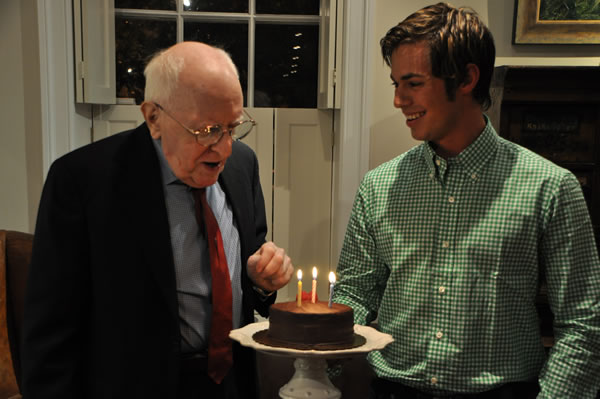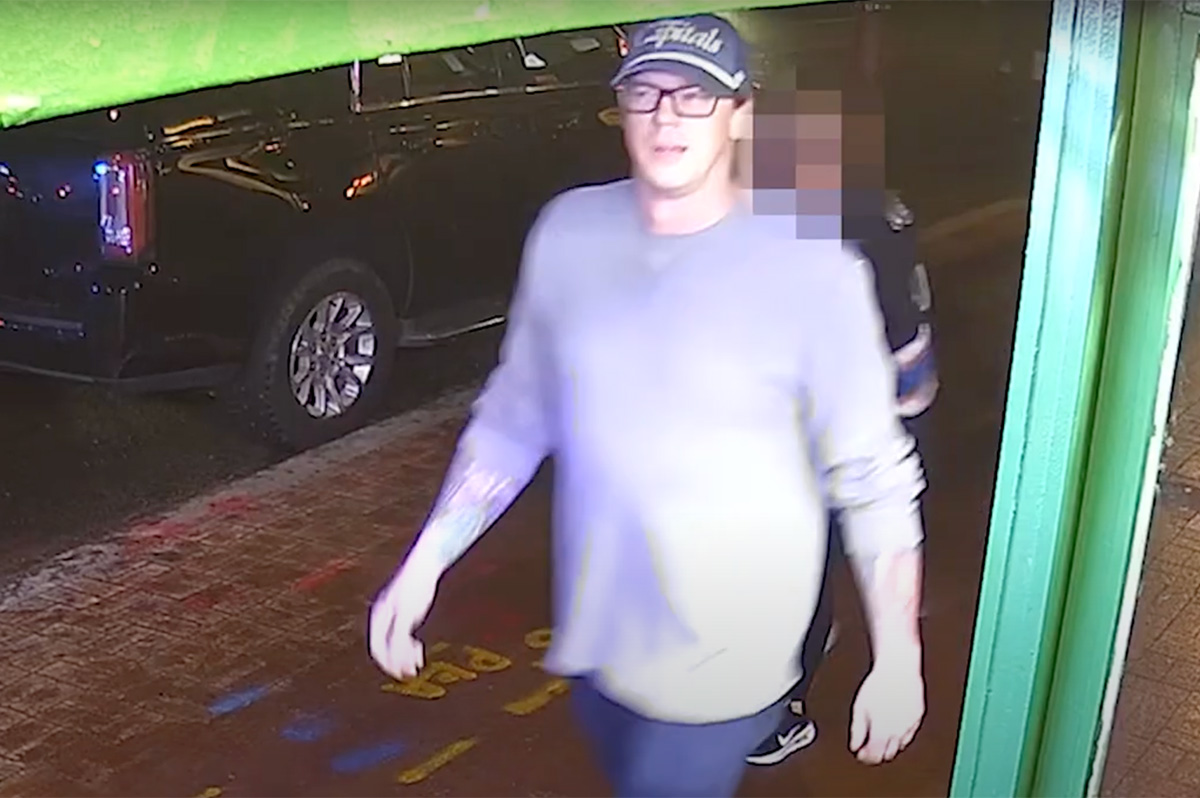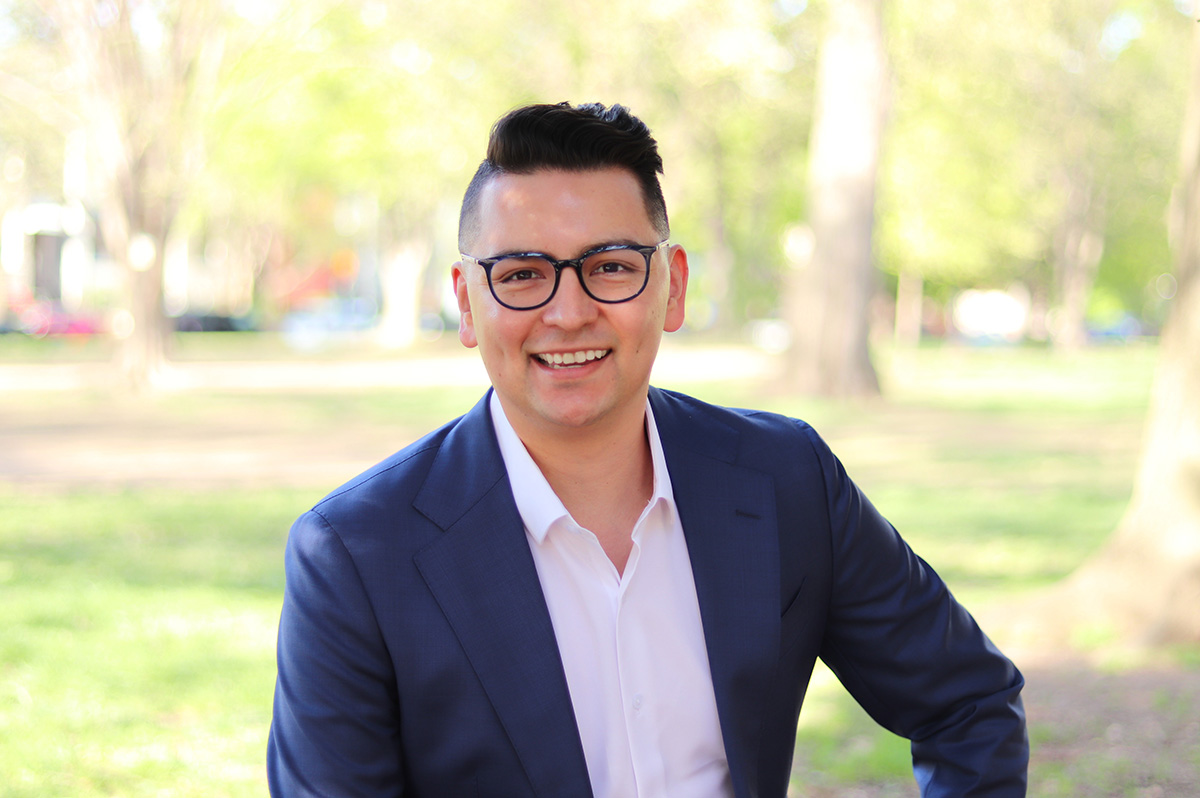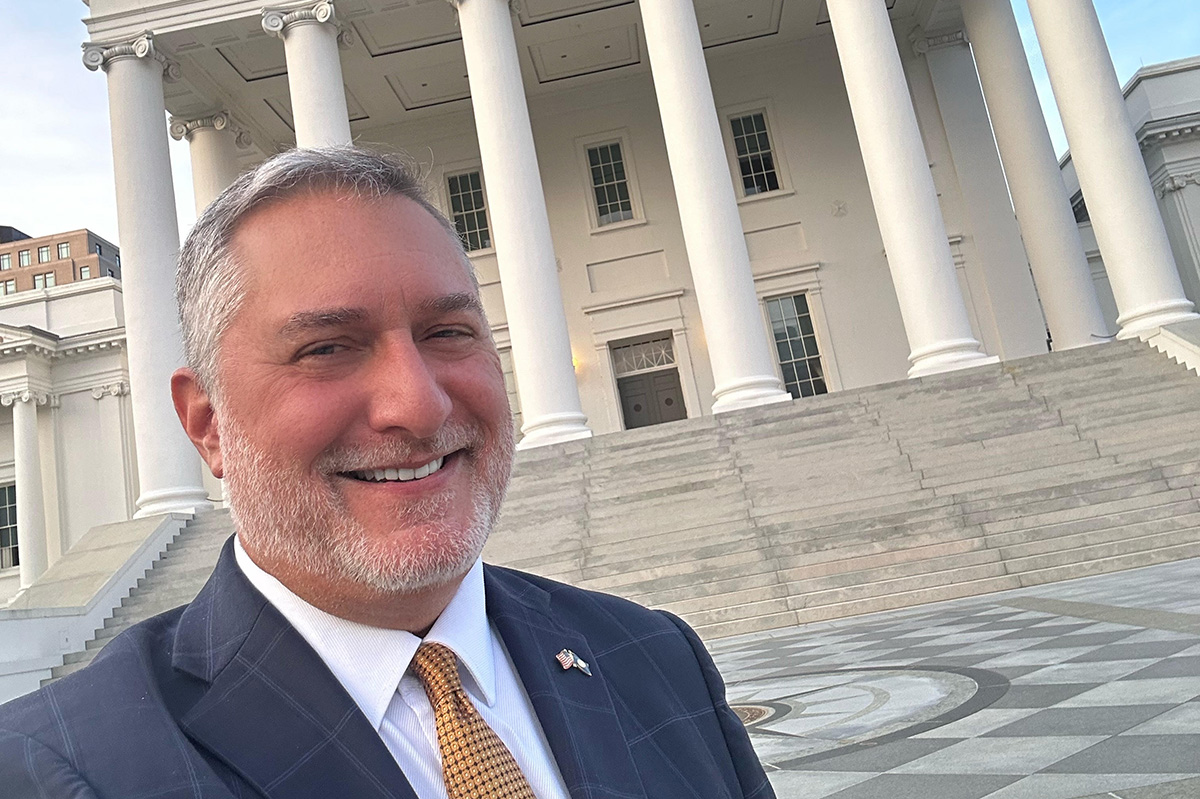Local
Kameny’s work finds new home
Library of Congress to preserve gay activist’s 70,000 letters, documents

Veteran D.C. gay rights leader Franklin E. Kameny has turned over more than 70,000 of his personal letters and documents to the Library of Congress, which will make them available to scholars and researchers.
At a ceremony scheduled for Oct. 6 at the library’s ornate Thomas Jefferson Building across the street from the U.S. Capitol, library officials were expected to join Kameny and many of his longtime friends and supporters to commemorate the library’s acquisition of the Kameny papers.
Kameny, 81, is credited with playing a lead role in launching the modern U.S. gay rights movement in the early 1960s after government officials discovered he was gay and fired him from his job as an astronomer with the Army Map Service.
In what gay activists see as a monumental twist of fate, the product of Kameny’s work on gay rights causes for nearly 50 years will now be placed in the same Library of Congress Manuscript Division that holds original documents of Frederick Douglas, Abraham Lincoln, Walt Whitman, Susan B. Anthony, and Bayard Rustin, among many other historic figures.
The Smithsonian Institution’s Museum of American History also has accepted a collection of 1960s-era protest and picket signs from the Kameny collection that Kameny and his supporters used for the nation’s first-ever gay rights demonstrations in front of the White House.
“After examining the Kameny papers, Manuscript Division historians judged them to be a rich and valuable resource that would allow researchers to more accurately understand the evolution of the homosexual rights movement into a significant social and political force,” said John Earl Haynes, a 20th century political historian at the Manuscript Division.
“The personal detail provided by the material on Mr. Kameny himself and those he assisted in similar circumstances is of unusual value,” Haynes said.
“Nearly 50 years go, the United States government banned me from employment in public service because I am a homosexual, Kameny said in a statement. “This archive is not simply my story,” he said. “It also shows how gay and lesbian Americans have joined the American mainstream story of expanded civil liberties in the 20th century.
“Today, by accepting these papers, the nation preserves not only our history, but marks how far gay and lesbian Americans have traveled on the road to civil equality,” he said.
Haynes said officials with the Manuscript Division first contacted Kameny about obtaining his papers in 1995 after they read an article about Kameny’s work by gay historian David K. Johnson. The article appeared in the official journal of the Historical Society of Washington.
Documents valued at $75,000
Earlier this year, a group of gay rights advocates and supporters founded the Kameny Papers Project, an ad hoc group created to raise money to facilitate the transfer of the papers to the library, according to gay public relations executive Charles Francis, the lead organizer of the project.
Francis said the group’s main purpose was to raise funds to buy the papers from Kameny — so that he could be compensated for his life’s work — and then donate the documents to the Library of Congress.
Its first task was to help Kameny assemble the papers in or orderly fashion and to have them appraised by a professional document appraiser. The appraiser determined the papers had significant historic value and were worth $75,000.
“With advancing years and limited means, Frank Kameny was not eligible for a federal tax deduction, as is common with such an extraordinary donation,” the Kameny Papers Project said in a statement.
Former California congressman and philanthropist Michael Huffington made the single largest contribution toward the purchase of the papers from Kameny, Francis said. He said the Human Rights Campaign, the nation’s largest gay political group, and the gay groups Gill Foundation, Bohnett Foundation, Log Cabin Republicans, Liberty Education Fund, and the National Gay & Lesbian Task Force also contributed to the fund.
Others firms and individuals that provided pro-bono services or contributions included Francis, New York gay businessman Donald Capoccia, the gay public relations firm Witeck-Combs Communications, the Joiner Law Firm, attorney Michele Zavos, and activists Gregory King, Elizabeth Koontz, and Ellen Ratner, according to the Kameny Papers Project.
Huffington and Capoccia have been longtime contributors to Log Cabin Republicans, and Francis is one of the founders of the Republican Unity Coalition, which has billed itself as a gay-straight alliance of prominent Republicans that support gay civil rights.
Kameny vs. J. Edgar Hoover
Gay historians have described Kameny as the architect of the modern U.S. gay rights movement, crediting him with transforming the fledgling “homophile” movement of the 1950s into an assertive civil rights struggle for gays and lesbians.
Most gay activists view the 1969 Stonewall riots in New York’s Greenwich Village as the spark that ignited a new phase in the gay movement that celebrated the slogan, “Out of the closet and into the streets.”
But gay historians like Johnson have credited Kameny with establishing, beginning in 1961, the philosophical and tactical underpinnings for the Gay Pride marches and political advocacy work that followed the Stonewall riots.
Kameny was the gay movement’s equivalent of Bayard Rustin, according to D.C. gay activist Rick Rosendall, in referring to Rustin’s role as a lead strategist for Martin Luther King in the black civil rights movement.
Shortly after being fired from his job at the Army Map Service, Kameny founded the Mattachine Society of Washington, the city’s first gay rights group. Kameny initially modeled the group after Mattachine Society chapters that had formed since 1950 in Los Angeles and other cities.
In some of his earliest papers now preserved at the Library of Congress, Kameny took exception to the prevailing view by Mattachine Society leaders that the groups should keep a low profile. Nearly all of the early Mattachine groups limited their work to research about homosexuality, educating the public on the subject, and helping other homosexuals adjust to society’s anti-gay prejudice, Johnson wrote in his 2003 book, “The Lavender Scare: The Cold War Persecution of Gays and Lesbians in the Federal Government.”
“Under Kameny’s leadership, the MSW would not remain underground and seek heterosexual authorities to speak on its behalf,” Johnson wrote. “On issues of homosexuality, Kameny argued, ‘we are the experts and the authorities.’” Johnson quoted him as saying.
Among Kameny’s innovations was the publication of a Mattachine Society of Washington newsletter, which the group sent to most top U.S. government officials, including President John F. Kennedy at the White House and all of Kennedy’s cabinet members, and then FBI Director J. Edgar Hoover.
Although most government officials did not appear to pay much attention to the newsletter, Kameny said he was startled in the summer of 1963 when FBI agent John A. O’Birne called Kameny by phone and requested to meet with him.
Kameny said he and Mattachine Society member Bob Bellanger had no idea why they had been summoned to a meeting with the FBI, an the two wondered whether a crackdown against Mattachine was in the works.
To their amazement, Kameny said, O’Birne politely asked him and Bellanger to remove Hoover’s name from the Mattachine Society mailing list, saying that Hoover did not wish to have his name on such a list. Kameny said he told O’Birne that he would have to consult other members of the group about this request and would get back to the FBI with the group’s response.
“I sent them a letter setting conditions for our removal of Hoover from our list,” said Kameny.
The conditions included a requirement that the FBI provide the group with the name of another FBI official to be placed on the newsletter list in place of Hoover and that the group would reserve the right to send Hoover a one-time mailing if an important issue arose.
The FBI never responded to Kameny’s letter. “Hoover stayed on our mailing list until the day he died,” said Kameny.
Hoover, who became notorious for keeping secret files on political activists and politicians – including President Kennedy – appears to have had the tables turned on him by discovering he was powerless to have him name removed from a homosexual rights group, gay activists have said.
In the 1970s and 1980s, Kameny served as an administrative counsel to gays who encountered problems obtaining or keeping security clearances issued by the federal government, becoming one of the nation’s recognized experts on gay-related security clearance issues. He also represented members of the military under investigation for being gay. In advising gay service members, Kameny coined the phrase, “Say nothing, sign nothing, and get counsel.”
He is also credited with creating the slogan, “Gay is Good,” which activists used in protest marches and Gay Pride festivals.
District of Columbia
D.C. police seek help in identifying suspect in anti-gay threats case
Victim threatened with assault, called ‘faggot’ as he left Capitals game

D.C. police are seeking help from the public in identifying a male suspect whose image was captured by a video surveillance camera after he allegedly shouted anti-gay slurs and threatened to assault a man at 6th and H Streets, N.W. on March 20 at about 9:54 p.m.
A police report says the victim told police the incident took place shortly after he exited the nearby Capital One Arena where he had attended a Washington Capitals hockey game.
The police report says the incident began when the victim saw the suspect yell a racist slur at a person behind the victim and started to berate a valet operator.
“Suspect 1 then turned his attention to Victim 1 and called him a ‘faggot’ among other homophobic slurs,” the report says. It says the victim then used his phone to record the suspect, prompting the suspect to walk away before returning and “snatching” the phone from the victim’s hand.
“Suspect 1 walked several feet as Victim 1 followed, requesting his phone back,” the report continues. “Suspect 1 stopped and turned to Victim 1 and while yelling other obscenities exclaimed ‘if you keep recording, I’m going to kick your ass.’” The report concludes by saying the victim was able to recover his phone.
It lists the incident as a “Threats To Do Bodily Harm” offense that is a suspected hate crime.
“Anyone who can identify this suspect or has knowledge of this incident should take no action but call police at 202-727-9099, or text your tip to the Department’s TEXT TIP LINE at 50411,” according to a separate police statement released April 23.
The statement says police currently offer an award of up to $1,000 to anyone who can provide information that leads to an arrest and indictment of the person or persons responsible for a crime committed in D.C.
D.C. police spokesperson Tom Lynch said the case has been under investigation since the incident occurred on March 20. He said the video image of the suspect, most likely obtained from a security camera from a nearby business, was released to the public as soon as it was obtained and processed through the investigation.
District of Columbia
Wanda Alston Foundation names new executive director
Longtime LGBTQ rights advocate Cesar Toledo to succeed June Crenshaw

The Wanda Alston Foundation, the D.C.-based organization that has provided housing and support services for homeless LGBTQ youth since its founding in 2008, announced it has appointed longtime LGBTQ rights advocate Cesar Toledo as its new executive director.
In an April 22 statement, the organization said that as part of a planned leadership transition launched in November 2024, Toledo will succeed June Crenshaw, who Alston Foundation officials and LGBTQ community activists say has led the organization with distinction in her role as executive director for the past nine years.
In a statement released last November, the foundation announced Crenshaw was stepping down from her role as executive director after deciding to “to step into her next chapter.”
“June’s leadership has been truly transformative,” said Alston Foundation Board Chair Darrin Glymph in the group’s April 22 statement. “We are immensely grateful for her dedication and equally excited for the energy and experience that Cesar brings to lead us into this next chapter,” Glymph said.
“A seasoned LGBTQ+ advocate, Cesar brings over a decade of experience leading national campaigns, shaping public policy, and building inclusive communities,” the statement released by the group says. “Most recently, he served as the National LGBTQ+ Engagement Director for the Harris for President Campaign and has built a career focused on advancing equality and equitable education,” it says.
Biographical information about Toledo shows that immediately prior to working for the Harris For President Campaign, he served since April 2023 as deputy director for Democrats for Education Reform DC (DFER DC), a political group that helps to elect candidates for public office committed to quality education for all students, including minorities, people of color and LGBTQ youth.
Before joining DFER DC, Toledo served as political director for the LGBTQ+ Victory Fund, where he assisted in electing out LGBTQ candidates to all levels of public office across the U.S.
“I’m really excited about joining the Wanda Alston Foundation,” Toledo told the Washington Blade. “After a decade of working at the intersection of politics and policy and advancing political candidates and equitable education here in D.C., I wanted to shift my career to direct services to the most vulnerable folks in the LGBTQ+ family and our homeless youth,” he said.
Among other things, he said he would push for increasing the Alston Foundation’s visibility and mainlining its services for LGBTQ youth at a time when the national political climate has become less supportive.
A statement on its website says the Alston Foundation was founded in 2008 “in memory of Wanda Alston, a fierce LGBTQ+ activist, national advocate, and government official who was admired by District residents.”
The statement adds, “The foundation opened the first housing program in the nation’s capital in 2008 providing pre-independent transitional living and life-saving support services to LGBTQ+ youth.”
In a separate statement, the Alston Foundation announced it would hold a “thank you” celebration of appreciation for June Crenshaw from 6-8 p.m. on May 20 at Crush Dance Bar located at 2007 14th Street, N.W. in D.C.
“Let’s come together to celebrate her dedication and commitment for everything she has done for the LGBTQIA homeless youth population,” the statement says.
Virginia
Gay talk show host wins GOP nom for Va. lieutenant guv
John Reid becomes first out gay nominee for statewide office in state

John Reid, a conservative gay radio talk show host in Richmond for many years, this week secured the Republican nomination for the office of lieutenant governor in Virginia, becoming the first known openly gay person to be nominated for a statewide office in that state.
Reid secured the nomination after his only rival in the Republican primary, Fairfax County Supervisor Pat Herrity, dropped out of the race this week for health reasons.
Herrity’s decision to withdraw from the race finalized the GOP nominees for Virginia’s three statewide contests in the November general election in what political observers are calling an unusually diverse GOP slate.
Current Virginia Lt. Gov. Winsome Earle-Sears, a Black woman, captured the GOP nomination for governor without a GOP opponent. Jason S. Miyares, a Hispanic man, is running for re-election as Virginia attorney general without a GOP rival. And Reid, a gay man, is the GOP nominee for lieutenant governor.
Reid will face one of six Democratic candidates for lieutenant governor who are competing in the June 17 Democratic primary.
The Blade spoke with Reid on Tuesday. Below is a partial transcript of that interview.
Blade: Is there a message you have for LGBTQ voters in Virginia, including Democrats, for why you think they should vote for you?
Reid: Well, the thing that I would say to gay voters who are looking and examining the candidates, is that I was out of the closet as a gay Republican publicly in very difficult rooms where people weren’t accepting of gay men – long before Donald Trump said I don’t care about this stuff.
And long before polite society said this was OK. So, in the ‘90s I came out on television and said on Oct. 11 – it was on National Coming Out Day. It was probably in 1996 or 1997. I started at the TV station in 1994. So, it was a couple of years into it.
I came out and said you never know your news anchor could be gay on National Coming Out Day. And everyone was appalled. How can you say this? You’re not supposed to say something like that. So even though I’m a Republican I know some people in the LGBT community are reflexively hostile to Republicans.
I took that step in public, and I think I helped change a lot of minds within the Republican Party and within central Virginia, which continues to be a pretty conservative place by being true to who I am. I spoke out in meetings around Republican staff and legislators and said I think we are not doing the right thing by being hostile to gay marriage.
We talk about the importance of family – Republicans talk about the importance of family, the importance of marriage as a fundamental building block of society. And a gay marriage is a net positive. Is it biblical to people who are following traditional Christian theology? No. But is it good for our society to have people in committed relationships? I think yes.
When we were going through the debate over gays in the military I said I see no reason that someone who is qualified to be in the military and can meet every single standard that everyone else is asked to meet, why should they not be in the Naval Academy, the Air Force Academy, West Point? Or serving as a grunt in active duty. Why would we exclude those people?
And those were very unpopular positions within the Republican Party.
Blade: Your campaign website says you have supported civil unions for same-sex couples. I could have missed seeing it, but I didn’t see an expression of support for gay marriage. Are you saying now that you support full same-sex marriage?
Reid: You know, you’re right. There is a distinction. And I think marriage is completely legitimate. Civil unions – if you want to go and sign paperwork at the courthouse – that’s great. If you want to be married and if a church wants to marry you if you find a church and religious leader and group that wants to bless that – that’s what I hope to do with my partner now.
Sometime in the near future I hope we will be married. And it’s very important to me as a Christian to be married in a church. So, that’s interesting. Most people would not draw that distinction. I appreciate that you’re drawing a distinction. I’m supportive of both.
Blade: Did you say you worked for a member of Congress? Can you say who that was?
Reid: George Allen, the senator from Virginia. And, of course, you and I – I know you’ve covered so many stories like this that you’ve brought together. But it was a very difficult position. When I started with Sen. Allen, he had a very libertarian attitude about this. The [Virginia State] constitutional amendment was not necessary. There was no need to go down that road.
And of course President Bush – George W. – was very assertive during the 2004 campaign. And then the issue continued to bubble up and you know we wound up with this amendment in the Virginia Constitution that banned gay marriage until the Supreme Court decision. And I was not supportive of that. And I voted for my boss, my senator, who I respected and still do respect.
Blade: Your website shows that your support for the gay community does not extend to the transgender community.
Reid: Yeah, I hate this. But I do think that our current focus on trans issues is where the gay rights movement has jumped the shark. And I think we’re losing support that we worked very diligently for decades to build with the average person. And I’m puzzled that the former leaders of the Human Rights Campaign had presidents when Elizabeth Birch and others – I don’t know what their stance is today.
I do recall that all of us who talked about gay rights issues focused on normalcy and that we would meet every standard that everyone else met. That all the vile things that were said about gays being pedophiles and grooming children – that simply was not true.
And I think we have stumbled into a very unfortunate and dangerous territory where we’re almost taunting the average person with an insistence that they accept drag queen story hour and the provocative books and provocative media that the average person would say, ‘You told us you were normal. – quote unquote normal – and now you are peddling an agenda which we don’t agree with and you’re being really aggressive about it.
And that’s really a difference. I know you’ve been covering it for a long time. I don’t know if you agree with this. I think we are peddling a very different political agenda today than the gay community was 20 years ago. And I think we should restrain ourselves and be cautious about that. And I think we’re in dangerous territory with the general population. And I’d urge caution about that.
Blade: Online reports show that there are as many as six Democratic candidates competing for the lieutenant governor’s position in the June 17 Democratic primary. Do you know any of them?
Reid: I’m familiar with most of them. Some are from the Richmond area. And I believe they are all very supportive of gay rights, which is I think a good thing. My reason for challenging them as a Republican – and I think there are other places where there is a lack of appropriate leadership and good judgment. And so, I don’t expect the gay issue would be a real issue. The trans issue may be a point of contention in the race.
But I don’t think the gay issue – and I do draw a distinction between the two — I don’t think that will be a real dividing line with those Democrat[ic] candidates.
Blade: So unlike when you were a TV news anchor, on your radio talk show were you able to offer more opinions and commentary?
Reid: That’s correct. There was a lot of opining, no script. So, I was able to tell stories about how I traveled to Miami, and I went to Washington. I went to the Kennedy Center and shared some of my life and lifestyle as appropriate with the audience.
Blade: Well, thank you for this interview.
Reid: I’m happy to talk to you. One of the reasons I called you back is that the political consultants have always told me don’t talk to anybody that might disagree with you. And I reject that. I have already lived 30 years as an out gay man. And it has been very difficult. And I would like to make it easier for the next generation to live their authentic selves. … Calling you and talking to you against the advice of all these people who say never do that, I’m hopeful that my willingness to engage and be candid will ultimately be well received, I hope.
-

 Federal Government1 day ago
Federal Government1 day agoHHS to retire 988 crisis lifeline for LGBTQ youth
-

 Opinions1 day ago
Opinions1 day agoDavid Hogg’s arrogant, self-indulgent stunt
-

 District of Columbia20 hours ago
District of Columbia20 hours agoD.C. police seek help in identifying suspect in anti-gay threats case
-

 Theater4 days ago
Theater4 days ago‘Bad Books’ a timely look at censorship in local library












